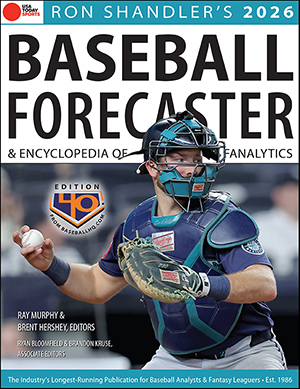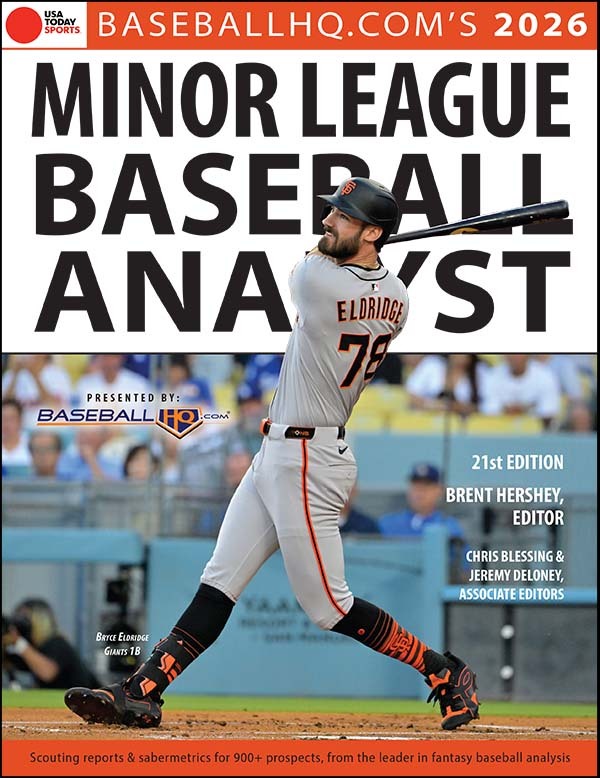
(*) MASTER NOTES: Ball Four
I don’t know if you saw the New York Times this past Sunday. In the Sunday Sports, they ran a sad story about the decline of one of the most important figures in my own baseball history and my lifelong interest in baseball books.
The Times story is about former Yankee pitcher Jim Bouton, who has had a couple of strokes and is now struggling with a form of brain disease (link might be restricted access) that often leads to dementia.
You might not remember Bouton’s playing career. He was a fastball-curve-slider phenom who signed with the Yankees in 1959, and was promoted to the Yankees in 1962 as a swingman.
In 1963-64 he was one of the top pitchers in the American League. In 1963, he notched a top-five 2.53 ERA and top-10 1.12 WHIP, in just short of 250 innings, and was arguably the best starter in a rotation that included Whitey Ford and Mel Stottlemyre. He pitched in that year’s World Series, giving up a run in the first on a walk, wild pitch and seeing-eye single off the mound. Then he settled in and held the Dodgers scoreless, losing the game because the LA pitcher was throwing a three-hit, one-walk CG shutout. Some guy named Drysdale.
The next year, Bouton led the AL with 37 starts. He had a 3.02 ERA and a top-10 1.06 WHIP in just over 270 innings (!). He won two games in the World Series against STL, including a complete-game 2-1 win in which his run was unearned because of a error by the right fielder. The game was decided in the bottom of the ninth when that same right fielder crushed a walk-off HR to deep right. His name was Mickey Mantle. You might have heard of him.
After more than 500 innings in two years, which today we would call “four years’ worth of innings,” the wheels—or perhaps more accurately, Bouton’s arm—fell off. He started 25 games in 1965 and 19 in 1966. In 1967-68, he threw less than 90 innings combined as a Yankees reliever and spot starter.
In 1969, he was ... a Seattle Pilot.
And it was with the expansion Pilots that Bouton went from being a two-season footnote in baseball’s history to one of its most important figures. Because he wrote a book called Ball Four.
* * *
Ball Four came out in 1970 and caused a sensation. It was basically a diary, with Bouton (and editor Leonard Shecter) serving up startlingly candid and often hilarious anecdotes about the oddities of day-to-day life as a major-league ballplayer.
We learned about the ballplayers’ real workplaces, away from the field—the locker room, the bullpen, the training camps, the planes and buses and hotels—all those places the fan never gets to see.
And instead of the typical white-bread hero-worship sports fans usually got from stories about ballplayers, we got the rest of the story. We got the ribaldry, the vulgarity, the pranking, the amphetamine use, the womanizing, the pettiness and the personal differences that inevitably form when you have 25 or more men, many of them competing for each other’s jobs, packed into each other’s jockstraps for seven months every year.
Along the way, Bouton made (or revealed) memorable characters out of teammates who otherwise would have long ago vanished into the fog of baseball history. We read about Bouton’s favorite foil Fred Talbot, Gene Brabender, Gary “Ding Dong” Bell, Ray Oyler, Don Mincher and all the other cast-offs and sad-sacks who made up the expansion Pilots in the first (and only) year in Seattle. When Bouton was traded to the pennant-contending Astros, we also got a glimpse of some genuine stars, including superstar pitcher Larry Dierker, all-star OF Jim Wynn, and future double MVP (and for my money, one of the top-10 players in baseball history), Joe Morgan.
But the Pilots' stuff was the gold, especially when Bouton aimed his darts of observational wit at the Pilots’ management. He portrayed General Manager Marvin Milkes as a sneaky, largely incompetent penny-pincher. He characterized field manager Joe Schultz as a Falstaffian figure, an amiable dunce who provided comic relief (from the underlying comedy) and had only occasional bursts of baseball insight. Bouton ridiculed pitching coach Sal Maglie for his refusal to accept Bouton as a "one-pitch pitcher," even though he said in his heyday his game plan was "ninety-seven snappers."
Infield coach Ron Plaza came off as a bromide-tossing drill-instructor type, and clubhouse manager Eddie O’Brien as a small-minded, butt-kissing bureaucrat who spent his time hectoring the players about their use of the baseballs and about not eating sunflower seeds in the bullpen.
He also wrote candidly about players on other teams. He drew a lot of fire at the time for his portrayal of former teammate Mickey Mantle, whose mean streak and obvious drinking trouble offset his prodigious talents—including hitting a mammoth homer while under the effects of an equally mammoth hangover. Bouton says Mantle said upon staggering back into the dugout, “Those people don’t know how hard that really was.”
And that’s just it. We didn’t know how hard it is. And even though oceans of ink and forests of paper were spent lionizing baseball’s heroes, Bouton did something even more important: He showed us that baseball players are people.
* * *
The first time I read Ball Four was in 1972. My pal Lindsay, a baseball fan, lent it to me and told me I should read it. I did, and I was hooked.
I have read Ball Four at least once a year ever since, more than 50 times in all. I can read it from cover-to-cover in a couple of hours now, gliding efficiently through the text the way a park ranger can walk a familiar trail. I can open the book at random after a year and continue reading as though I had just put it down 15 minutes before. I’ve owned at least 10 different copies of Ball Four, including the two autographed 1993 editions currently in the baseball section of my bookshelf. I have two of those because I got one for myself, and brother gave me another one for Christmas that same year.
Ball Four sparked an interest in the game that I’ve had ever since, and an equally consuming interest in the writing about the game. Some people say the best sportswriting is about boxing, and there's some truth to that. Nick Tosches' bio of Sonny Liston is simply fantastic, as is David Remnick's Ali bio. And for boxing reportage, it's hard to top Norman Mailer's The Fight, his book about the Ali-Foreman "Rumble in the Jungle," also the subject of a tremendous documentary film, When We Were Kings.
But I'll take a good baseball book any time. And I've read plenty of great ones. So as we close this edition of Master Notes, let me offer some suggestions for your reading pleasure during the long cold winter of the All-Star break.
I’ve read a ton of player autobiographies, and the only one I can really recommend is Sparky Lyle’s The Bronx Zoo. I’ve read it quite a few times since I first read it in a Saskatoon diner and paralyzed the entire place by roaring with laughter at the wiener-in-the-glove story.
Sort of the in the genre, I loved You’re Missin’ A Great Game, by the great manager Whitey Herzog. Keen insight and profane storytelling in one underappreciated volume. And speaking of managers, I’ve re-read Earl Weaver’s Weaver on Strategy many times as well. He was a manager’s manager, always looking for (and usually finding) some edge, and the book, while not providing laughs like Herzog’s, is brisk and efficient. A great gift for the newcomer to the game who wants to understand in-game tactics.
Among player biographies, the two that stand out for me are Joe DiMaggio: The Hero's Life, a warts-and-all study of the Yankee Clipper, and Sandy Koufax: A Lefty's Legacy, a more friendly analysis of the legendary Dodgers lefty by Jane Leavy.
I can also recommend four classics about the business of baseball. My favorite is A Whole Different Ball Game, by Marvin Miller, the executive director of the player’s union for many years and the guy who got players the huge paydays they were earning with their skills. Bouton was playing when Miller was hired to run the player’s association, and recalls knowing Miller was the right man for the job when Milkes told him to “be very, very careful about this guy Miller.” Another baseball man called Miller “a mustachioed four-flusher.”
In his book, Miller is very straightforward and analytical in describing the labor climate he ended up managing, but he’s also funny—especially when he’s belittling former Commissioner Bowie Kuhn. Samples: “... Kuhn’s predictions were so far off that he couldn’t even predict the past after it had happened,” “Kuhn must be singled out as the most important contributor to the successes of the Player’s Association.... If Bowie Kuhn hadn’t existed, we would have had to invent him,” and my personal favorite, after describing Kuhn’s clumsy attempts to foster “reciprocity” with Miller: “Bowie’s other intention was to pick my brains. There was scant possibility of reciprocity in that department.”
Another must-read for anyone interested in the history of the baseball business is Lords of the Realm, by John Gelyar. More recently, Diamond Dollars, by former MLB consultant and current SABR president Vince Gennaro, has provocative analysis of the baseball business, especially the important link between winning and revenue growth. And May the Best Team Win, by Andrew Zimbalist, is a 2004 study of MLB’s monopoly and the long-term threat it posed to the game at that time—and in some ways still does.
Books by Roger Angell and David Halberstam are money in the bank. And the Red Smith column collection Red Smith on Baseball: The Game's Greatest Writer on the Game's Greatest Years, shows a master stylist at work, but the style might come across as a little ornate for modern readers, and the teams are from a long time ago.
I think Michael Lewis’ Moneyball is important for fans to read, and Sam Walker’s Fantasyland is fun and worthwhile for fantasy owners, but I haven’t read either a second time, and I doubt I ever will.
* * *
To wrap up, that Times story about Bouton said that after Bouton’s first stroke, a misuse of blood thinners “led to a hemorrhage in the frontal lobe (that) essentially wiped out ... Bouton’s language skills. He had to relearn how to read, write, speak and understand.”
This seems... tragic. In his book and in person, Bouton was marked by his language skills. Witty, quick, articulate and eloquent, he is a genuine pleasure to read and to hear.
It appears those days are gone, or fading fast. We're fortunate that he left such a great legacy.
I hope you have found a baseball book to love as much as I love Ball Four. And if you haven’t, do yourself a favor this break and read (or re-read) Ball Four during the break. You’ll be glad you did.





-300x200.png)



